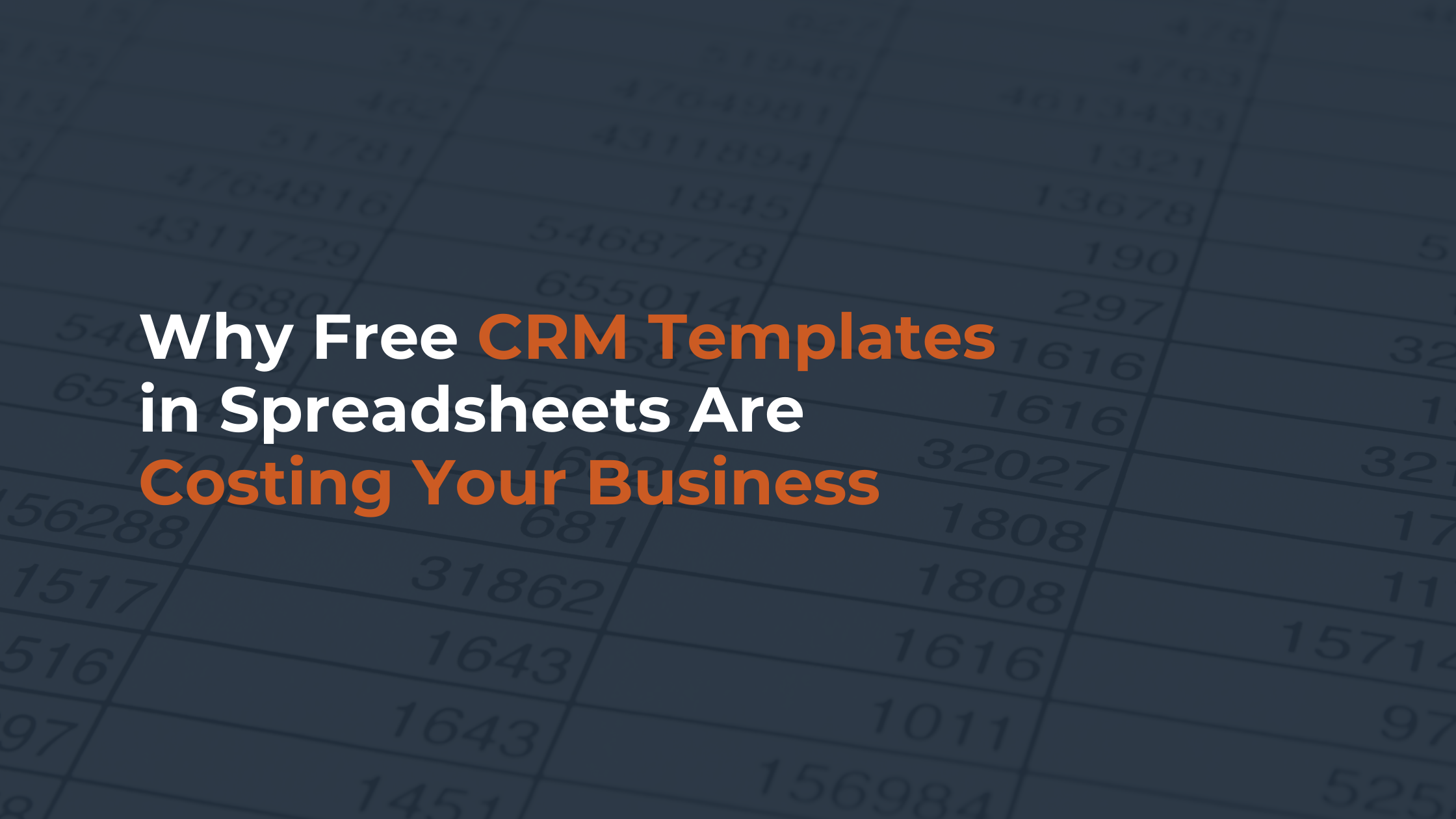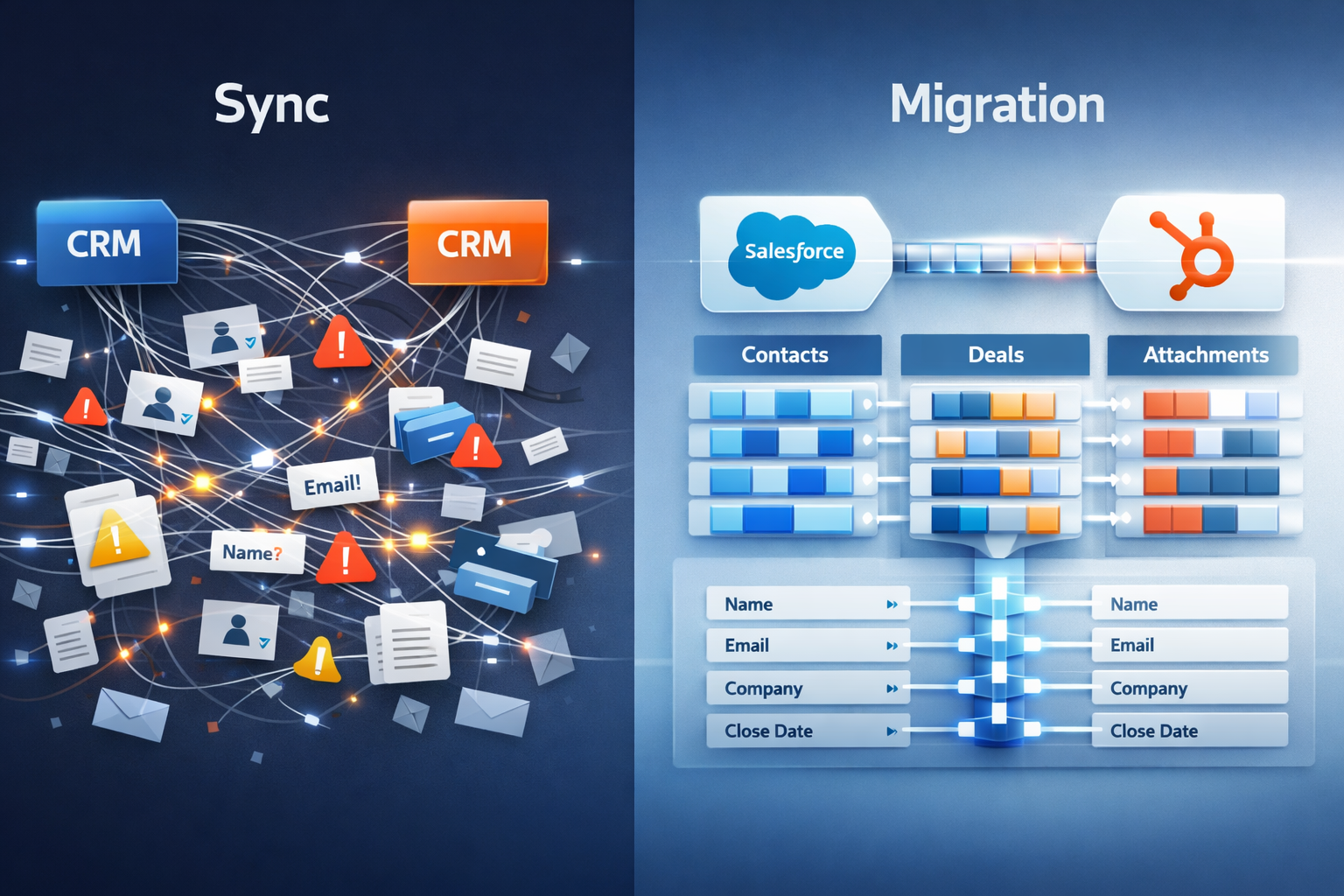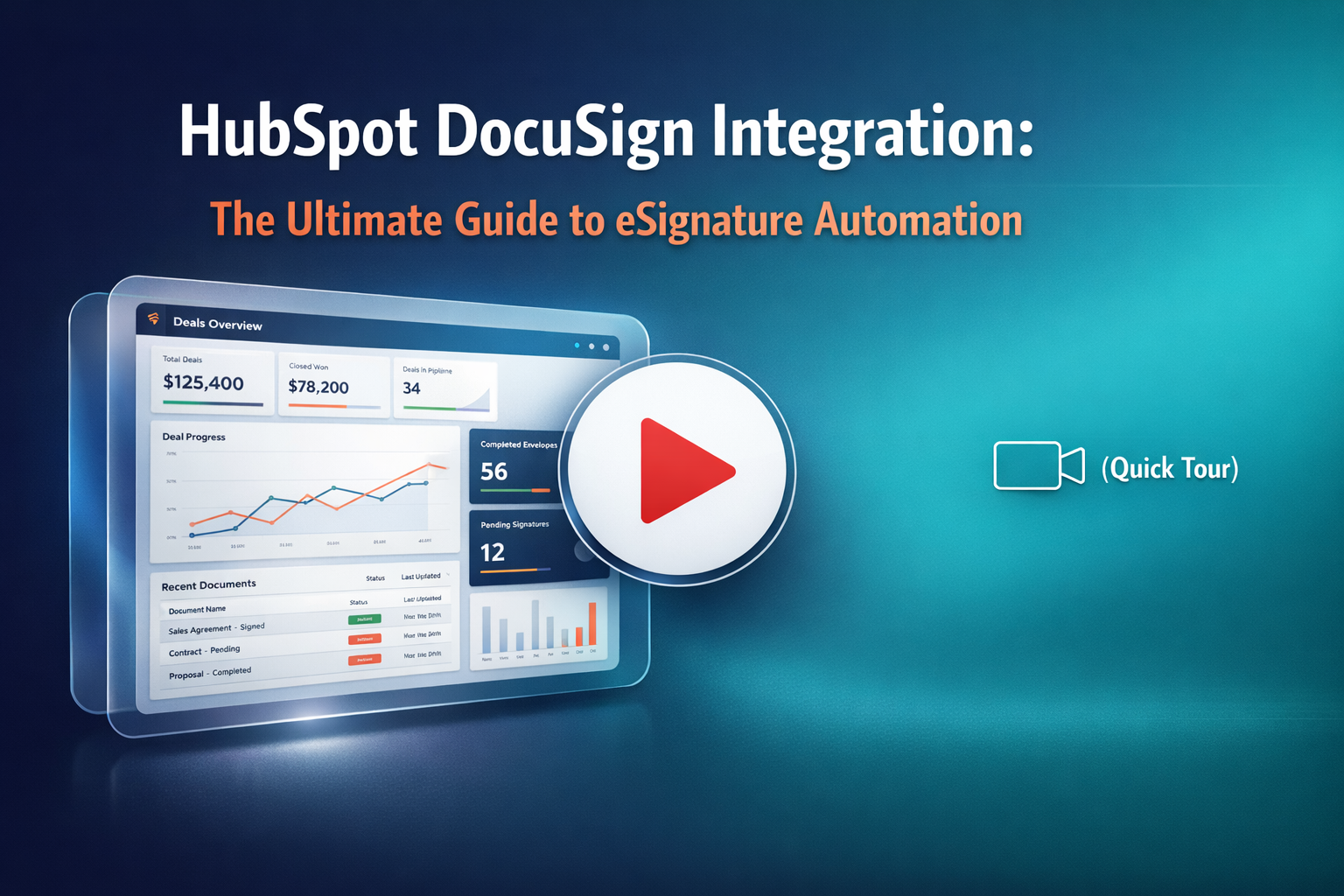Introduction: The Allure of the Free CRM Template
Effective customer relationship management is crucial for businesses of all sizes. Businesses are constantly on the lookout for efficient ways to manage and nurture their customer relationships, and one solution that often catches their attention is the availability of free CRM templates in Excel and Google Sheets. These templates promise a no-cost solution and provide a basic framework to get started. However, it's important to remember the age-old saying, "You get what you pay for."
- Key Points:
- The appeal of 'no upfront cost'.
- The misconception that a free template can meet all CRM needs.
- The ease of starting with a template, like the beginner-friendly CRM template from ClickUp.
The False Economy of the CRM Excel Template
Using a spreadsheet template as a customer relationship management tool might seem like a shrewd financial decision. However, this approach can be penny-wise but pound-foolish. As one business analyst puts it, "What you save in dollars, you often pay for in inefficiencies and limitations."
The allure of these free CRM templates is understandable. Businesses, especially small ones with limited budgets, are always looking for ways to cut costs and maximize resources. The idea of having a ready-made template that can be easily customized and used for customer relationship management seems like a shrewd financial decision. However, with many things in life, there are hidden costs and limitations associated with these free CRM templates provided by Excel or other platforms.
- Key Points:
- The hidden costs of time and inefficiency.
- Spreadsheet limitations in handling complex CRM tasks.
- The risk of data mismanagement and errors.
Limitations of Using CRM Templates in Excel and Google Sheets
While these templates offer a starting point, they often fall short in meeting all the needs of a comprehensive CRM system. They may provide a basic structure, but they lack the functionality required to handle complex CRM tasks. Customization options are limited, making it difficult to tailor the template to fit specific business needs. Tracking complex sales processes using a simple sales pipeline template can be a challenge, and the lack of advanced features hinders the ability to leverage the full potential of platforms like ClickUp or similar CRM systems.
- Key Points:
- Limited customization options in free templates.
- Difficulty in tracking complex sales processes with a simple sales pipeline template.
- Lack of advanced features in templates for ClickUp or similar platforms.
The Pitfalls of Building a CRM in Spreadsheet Software
Building a CRM in spreadsheet software like Excel or Google Sheets is not without its challenges either. Customization can be time-consuming, diverting valuable resources away from core business activities. As a business grows, the CRM needs to evolve, and spreadsheet-based CRMs struggle to keep up with scalability requirements. Additionally, data security risks are a concern, as these spreadsheet-based CRMs lack robust security features, putting sensitive CRM data at risk. Creating a CRM in Excel or Google Sheets involves numerous challenges:
- Time-Consuming Customization: Customizing a spreadsheet CRM template to fit specific business needs can be incredibly time-consuming.
- Limited Scalability: As a business grows, the CRM needs to evolve. Spreadsheet-based CRMs, even those using Excel as a CRM, struggle to keep up.
- Data Security Risks: Excel-based CRM templates and Google Sheets CRM templates lack robust security features, posing risks to sensitive CRM data.
Why a Simple CRM Template Falls Short in Effective Customer Management
A simple CRM template, such as a beginner-friendly template in Google Sheets, may seem appealing for small businesses. However, it quickly becomes inadequate when it comes to handling complex customer interactions and tracking detailed customer data. Integration with other business tools can also be limited, preventing businesses from creating a seamless workflow across different departments and systems.
Using a simple CRM template is like trying to fit a square peg into a round hole - it might seem to work at first, but eventually, you'll see the gaps.
-
Key Points:
- Inability to handle complex customer interactions.
- Limited functionality in tracking detailed customer data.
- Shortcomings in integration with other business tools.
The Risks of Relying on a Free Excel CRM Template
Relying on a free Excel CRM template can lead to several risks. Excel doesn't offer the same level of data protection as dedicated CRM software, leaving businesses vulnerable to security breaches. Manual data entry in Excel or Google Sheets can result in data integrity issues, leading to errors and inconsistencies. Extracting meaningful insights from a spreadsheet CRM template can be challenging due to limited reporting capabilities.
- Security Concerns: Excel doesn’t offer the same level of data protection as dedicated CRM software.
- Data Integrity Issues: Manual data entry in Excel or Google Sheets can lead to errors and inconsistencies.
- Limited Reporting Capabilities: Extracting meaningful insights from a spreadsheet CRM template is often challenging.
The Compromises of a Google Sheets CRM
While Google Sheets offers more collaboration features compared to Excel, it still falls short as a CRM tool. Sharing a Google Sheets CRM template with a team allows for collaboration, but it lacks sophisticated access control and audit trails. Integrating a Google Sheets CRM with other business systems often requires complex workarounds or additional tools. A dedicated sales CRM goes beyond the capabilities of a basic spreadsheet CRM by offering automated tracking of sales stages, real-time updates and notifications, and advanced analytics to forecast sales and identify trends.
- Collaboration vs. Control: Sharing a CRM template by Clickup via Google Sheets with a team offers collaboration, but it lacks sophisticated access control and audit trails.
- Integration Limitations: Integrating a Google Sheets CRM with other business systems often requires complex workarounds or additional tools.
Sales Pipeline Management: Beyond Basic Spreadsheet CRMs
Managing a sales pipeline is a complex task that requires much more than just a basic CRM template. While a template can provide a starting point, it often lacks the necessary features and functionality to effectively track and manage the different stages of the sales process.
A dedicated sales CRM offers automated tracking of sales stages, allowing businesses to easily visualize and monitor the progress of each deal. Real-time updates and notifications ensure that sales teams are always aware of any changes or updates in the pipeline, allowing for timely follow-ups and proactive decision-making. This level of automation and real-time visibility is something that a static sales pipeline template simply cannot provide.
- Key Points:
- A dedicated sales CRM offers automated tracking of sales stages.
- Real-time updates and notifications, something a static sales pipeline template cannot provide.
- Advanced analytics to forecast sales and identify trends.
The Myth of the 'Free' in Free CRM Templates
The concept of a "free" CRM template is often misleading. While it may seem like a cost-saving solution initially, the long-term inefficiencies and time spent on customization can outweigh the initial cost savings. Free templates also often lack comprehensive support and updates, leaving businesses without the necessary assistance to resolve issues and maximize the potential of their CRM system. Inadequate CRM functionality can result in missed opportunities and hinder a business's ability to effectively manage and nurture customer relationships.
"The most expensive software is the one that doesn't work." – A Super Smart Software Developer, Somewhere
- Key Points:
- Long-term inefficiencies and time spent on customization can outweigh the cost of a paid CRM solution.
- Limited support and updates with free templates.
- The cost of missed opportunities due to inadequate CRM functionality.
Making the Switch: Choosing an Effective CRM System Over a Spreadsheet CRM
Switching to a dedicated CRM system offers numerous advantages that can greatly benefit businesses in managing and nurturing customer relationships. One of the key advantages is the automation of processes, which saves time and reduces the likelihood of errors. With a dedicated CRM system, businesses can streamline their customer management processes, such as lead generation, contact management, and sales tracking, by automating repetitive tasks and workflows. This not only increases efficiency but also allows businesses to focus their time and resources on more important activities, such as building relationships with customers and closing deals.
-
- Automated Processes: Save time and reduce errors with automation.
- Scalability: A dedicated CRM scales with your business.
- Data Security: Enhanced security features protect sensitive information.
Conclusion: The True Cost of Using a CRM Spreadsheet
To truly invest in a business's future, it is crucial to choose an effective CRM system over a spreadsheet CRM. Switching to a dedicated CRM system offers numerous advantages, including automated processes, scalability to accommodate business growth, and enhanced data security features. By investing in a dedicated CRM system, businesses can improve efficiency, streamline workflows, and position themselves for future growth and success.
- Final Thought: Choosing the right customizable CRM is not about saving money on a free template; it's about investing in your business's future.
Struggling with free CRM templates? Discover the perfect CRM fit for your business with FindMyCRM's quick quiz. Tailored recommendations, easy comparisons, and the right CRM choice await.





